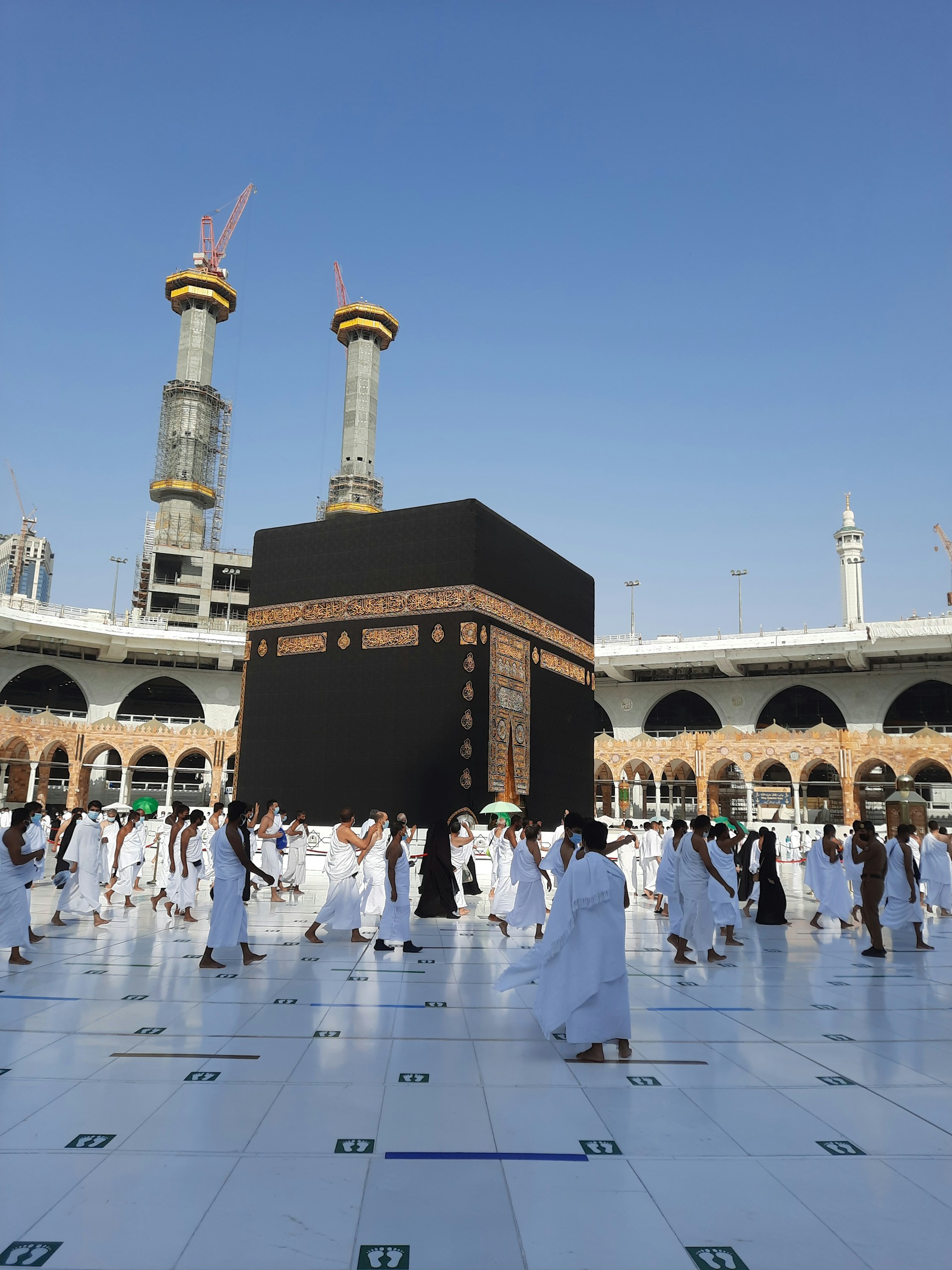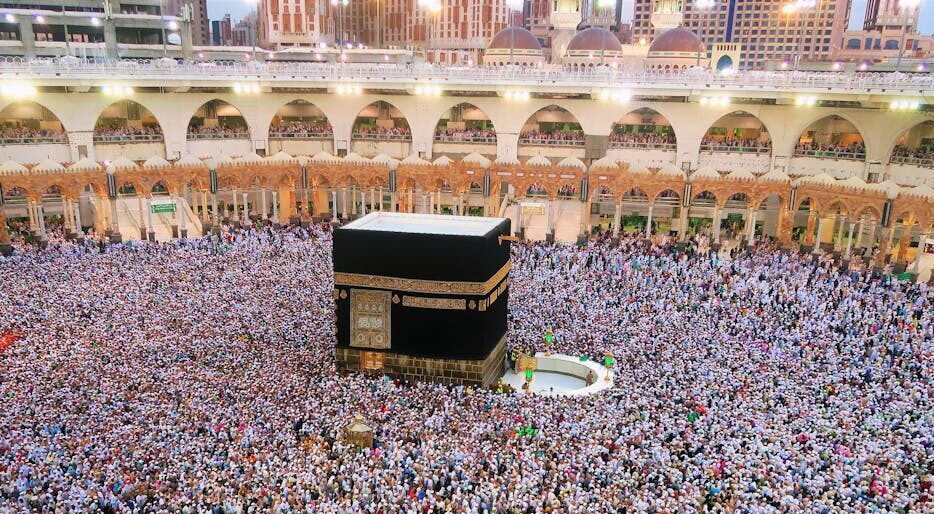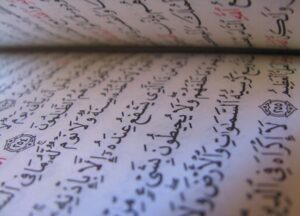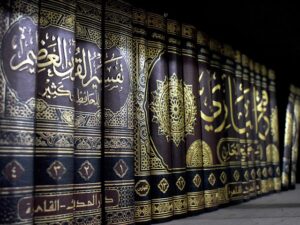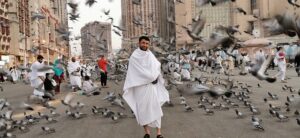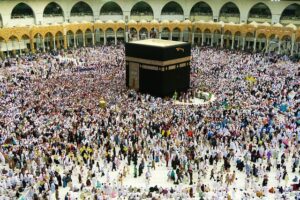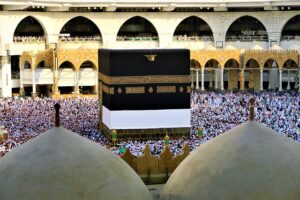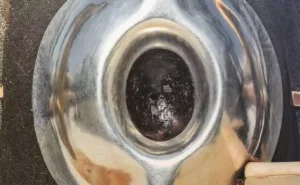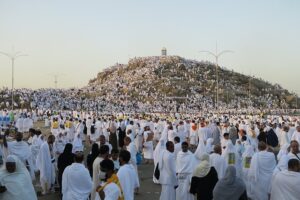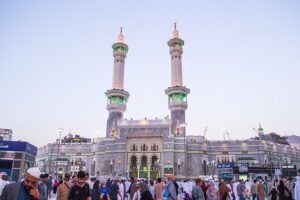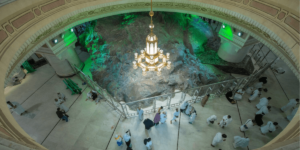Dua When First Seeing the Kaaba
Every year, millions of Muslims from around the globe embark on a sacred pilgrimage to Mecca, where they first lay eyes on the Kaaba, a moment that epitomizes spiritual awakening and renewal.
For many, this moment is profound, stirring deep emotions and a heartfelt connection to their faith. In Islam, there is a special supplication or dua for almost every act of worship and significant life events.
The dua when first seeing the Kaaba is one such invocation, filled with humility and awe. This blog aims to explore the significance of this dua, shedding light on its meanings, implications, and the overwhelming sense of peace it brings to the believers.
Whether you are preparing for Hajj or Umrah or simply wish to understand more about this poignant tradition, join us as we delve into the spiritual essence of encountering the Kaaba for the first time.
Dua to Recite When First Seeing the Kaaba
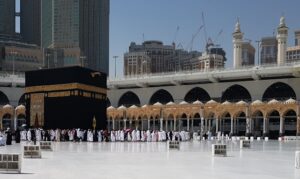
The Kaaba, draped in its iconic black Kiswah, stands at the heart of the Masjid al-Haram in Mecca as a symbol of unity and direction for all Muslims worldwide. It is not just a monument but a profound spiritual beacon.
When pilgrims catch their first glimpse of the Kaaba during the Hajj or Umrah, it is customary and highly recommended to recite a specific dua (supplication).
This moment, often filled with overwhelming emotion and spiritual intensity, is considered an opportunity for prayers to be accepted. You can recite the following dua when first seeing the Kaaba:
Arabic
English Transliteration
Allahumma zid hadha-l-Bayta tashrifan wa ta’ziman wa takriman wa mahabah, wa zid man sharrafahu wa karramahu mimman hajjahu awi- ‘tamarahu tashrifan wa takriman wa ta’ziman wa birra.
English Translation
Allah, increase this House in honor, esteem, respect, and reverence. And increase those who honor and respect it, of those who perform Hajj or Umrah, in honor, respect, esteem, and piety.
What Does It Feel Like Seeing the Kaaba for the First Time?
Seeing the Kaaba for the first time is an emotionally and spiritually profound experience for many Muslims, often marked by a deep sense of awe and wonder. The grandeur and historical significance of the site can be overwhelming, leaving many pilgrims moved to tears as the culmination of a lifelong spiritual journey unfolds before them.
In that sacred moment, feelings of intense humility and gratitude surface as pilgrims find themselves among thousands of others from diverse backgrounds; all united in their devotion. This realization fosters a powerful spiritual connection, enhancing a believer’s commitment to their faith and creating an overwhelming sense of proximity to the divine.
Despite the bustling crowds, a remarkable peace and tranquillity pervade the atmosphere around the Kaaba, offering a serene calm that many describe as enveloping and long-lasting.
The transformative experience often prompts a period of reflection and renewed purpose, inspiring pilgrims to re-evaluate their lives and embrace the lessons of sacrifice, patience, and perseverance that the pilgrimage embodies.
The first sight of the Kaaba, therefore, is not just a physical encounter but a deeply moving moment that remains etched in the hearts and minds of those who experience it.
Hadith About Seeing Kaaba First Time
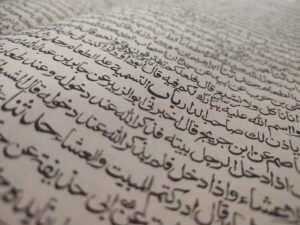
Here are a few hadiths that relate to the experience of seeing the Kaaba:
- The Reward Of Performing Hajj and the Significance of the Kaaba:
Seeing the Kaaba for the first time as part of the Hajj pilgrimage holds significant importance as it is the focal point of the Hajj rites, which, if accepted, leads to forgiveness of all past sins.
The Prophet Muhammad (PBUH) said:
“An accepted Hajj brings no less a reward than Paradise.” (Sahih Bukhari, Hadith 1773 and Sahih Muslim, Hadith 1349)
This hadith by the Prophet Muhammad (PBUH) explicitly states the immense reward of performing Hajj, which inherently includes the first sighting of the Kaaba as part of the pilgrimage rites. The first view of the Kaaba is often seen as the climax of the pilgrim’s spiritual journey, marking a moment of purification and renewal of faith. This hadith reinforces the spiritual significance of this moment and the entire pilgrimage, emphasizing that an accepted Hajj begins with the intention and the first sighting of the Kaaba.
- Virtues of Praying In Masjid al-Haram (Where the Kaaba Is Located)
When pilgrims see the Kaaba for the first time, it is often accompanied by the act of prayer within the sacred precincts.
The Prophet Muhammad (SAW) said:
“One prayer in my mosque (Masjid an-Nabawi) is better than one thousand prayers elsewhere, except the Sacred Mosque (Masjid al-Haram), and one prayer in the Sacred Mosque is better than one hundred thousand prayers elsewhere.” (Sunan Ibn Majah, Hadith 1406)
This hadith explains the extraordinary merit of praying in the Masjid al-Haram, the mosque that encloses the Kaaba. The Prophet’s statement places immense value on each prayer within this mosque, quantifying it as equivalent to one hundred thousand prayers elsewhere.
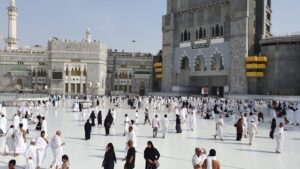
This elevates the spiritual experience of seeing and praying near the Kaaba, highlighting the unique and unmatched opportunity for spiritual elevation and closeness to Allah that the first sighting of the Kaaba provides.
These hadiths reflect the spiritual and religious significance of the Kaaba and the profound emotions associated with seeing it during the pilgrimage. They emphasize the awe, the reward, and the virtues of worship in the proximity of the Kaaba, underscoring its central role in Islamic worship and the life of every Muslim.
What is the Kaaba?
The Kaaba is a cube-shaped building located at the center of Islam’s most sacred mosque, Al-Masjid Al-Haram, in Mecca, Saudi Arabia. It is the most sacred site in Islam. Muslims around the world face the Kaaba during their daily prayers (Salat), no matter where they are. This direction, called “Qibla,” is an integral part of the Muslim faith.
The Kaaba is said to have been built by Prophet Ibrahim (Abraham) and his son Ismail (Ishmael) as a monotheistic house of worship. The structure is made of granite from the hills near Mecca, and it stands about 15 meters high. Its corners roughly align with the cardinal directions.
The eastern corner houses the Black Stone (Hajar al-Aswad), which is revered in Islam and considered by many to be a relic from heaven.
Each year, the Kaaba is the focal point of the Hajj, the pilgrimage that every capable Muslim is required to perform at least once in their lifetime if they can afford it and are physically able. The act of walking seven times around the Kaaba, known as Tawaf, is a key component of the pilgrimage rites.
Who Was Prophet Ibrahim (AS) in Islam?
Prophet Ibrahim (AS), known as Abraham in the Judeo-Christian traditions, is one of the most important figures in Islam. He is highly esteemed for his unwavering faith in Allah (SWT), his rejection of idolatry and polytheism despite the prevalent beliefs of his time, and his willingness to sacrifice his son in obedience to Allah (SWT) command (though ultimately, Allah (SWT) stops the sacrifice, substituting a ram instead).

Ibrahim (AS) is credited with building the Kaaba along with his son Ismail (AS). His story and his trials are frequently mentioned in the Holy Quran, which details his debates with his father and his people about the oneness of Allah SWT, his migration in search of Allah SWT mission, and the testing of his faith.
Muslims honor prophet Ibrahim (AS) for his strict monotheism, his righteousness, and his role as a wise, obedient prophet who laid much of the groundwork for the teachings later formalized by prophets Musa (AS) (Moses), Isa (AS) (Jesus), and Muhammad (PBUH).
In Islam, Prophet Ibrahim (AS) is also remembered during the annual Hajj pilgrimage through specific rites that commemorate events in his life, such as the symbolic stoning of the devil (representing his rejection of Satan’s temptation) and the sacrifice of an animal, which commemorates the offering he was willing to make of his son.
These rituals underline his exemplary faith and obedience, serving as a model for all Muslims.
What is Tawaf?
Tawaf is an Islamic ritual that involves circling the Kaaba, the sacred cube-shaped building in the Grand Mosque (Masjid al-Haram) in Mecca, seven times in a counterclockwise direction.
This act is a key component of the Islamic pilgrimage rites performed during both Hajj (the major pilgrimage) and Umrah (the lesser pilgrimage), although it can also be performed any time a Muslim visits the mosque.
Details of Tawaf:
- Starting Point: Each circuit of the Kaaba starts and ends at the Black Stone (Hajar al-Aswad), located at the eastern corner of the Kaaba. Pilgrims typically try to kiss or touch the Black Stone at the beginning of each circuit, emulating the Prophet Muhammad (SAW). If touching the stone is not possible due to the crowd, it is customary to simply point towards it.
- Circuits: The pilgrims move in a counterclockwise direction, keeping the Kaaba on their left. Each of the seven circuits begins at the Black Stone and ends after completing a full loop around the Kaaba.
- Niyyah (Intention): Before beginning Tawaf, pilgrims make a niyyah (intention) to undertake the ritual for the sake of Allah. This intention is crucial as it distinguishes the act from mere physical exercise and imbues it with spiritual significance.
- Duas and Recitations: During Tawaf, pilgrims engage in personal supplications, recite verses from the Holy Quran, or silently meditate on their closeness to Allah. There are no specific prayers mandated for each circuit, so worshippers are free to use this time for personal reflection and prayer.
- Ramal: During the first three circuits of the Tawaf of Arrival (Umrah tawaf), men are recommended to perform a brisk pace known as Ramal, which involves walking quickly with short steps. This tradition harks back to the early Muslims who wanted to demonstrate their strength and vigor to the pagans of Mecca.
- Conditions: Tawaf requires ritual purity, similar to that needed for Islamic prayer (Salat). Therefore, performing ablution (Wudu) is a prerequisite. Furthermore, the entire ritual must be performed in a state of Ihram (a sacred state of purity and specific dress code) during Hajj.
What to Recite When Entering Makkah?
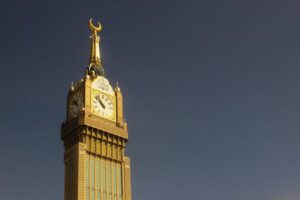
Upon arriving in Mecca for Hajj or Umrah, it is advisable to offer a dua, giving thanks and seeking blessings and protection for the sacred journey ahead.
While there is no specific dua designated exclusively for the moment of arrival in Mecca, the following supplication captures a sense of humility and implores protection against all forms of evil.
Transliteration: A’udzubikalimatillahit-tammati min sharri ma khalaq.
Translation: “I seek refuge in perfect words of Allah from every evil (that has been created).”
Dua to Recite When At the Black Stone
When beginning Tawaf and touching or kissing the Black Stone, it is Sunnah to say:
Transliteration: “Bismillah, wa Allahu akbar (in the name of Allah, and Allah is the greatest).”
It is also permissible to add:
“Allahumma eemaanan bika wa tasdeeqan bi kitaabika wa wafaa’an bi’ ahdika wa ittibaa’an li Sunnati Nabiyyika Muhammad sall-Allahu’ alayhi wa sallam (O Allah, I do this believing in You, affirming the truth of Your Book, fulfilling Your covenant, and following the Sunnah of Your Prophet Muhammad, blessings and peace of Allah be upon him)”
This practice is supported by a hadith reported from Ibn’ Abbaas (may Allah be pleased with him), in which it is mentioned that the Messenger of Allah (blessings and peace of Allah be upon him) performed Tawaf around the Ka’bah on a camel.
Each time he reached the corner with the Black Stone, he pointed to it with something in his hand and pronounced takbeer. (Al-Bukhaari 1632)
Summary – Dua When First Seeing the Kaaba
In conclusion, the moment of first seeing the Kaaba is one filled with profound significance and emotional depth. The dua when first seeing the Kaaba encapsulates the essence of this pivotal experience, allowing pilgrims to express their awe, humility, and devotion.
Reciting this dua is not merely a ritual; it is a heartfelt declaration of one’s faith and a reaffirmation of one’s spiritual journey.
For believers, it reinforces their connection to Allah, enhances their awareness of His presence, and deepens their commitment to His teachings. As we reflect on the power of this simple yet profound supplication, we are reminded of the universal message of peace, unity, and continuous spiritual growth that the Kaaba represents.
May every pilgrim’s first sight of the Kaaba bring a renewed sense of purpose, peace, and proximity to the divine.
Related Articles



